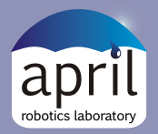
Mobile multi-robot systems can be immensely powerful, serving as force multipliers for human operators in search-and-rescue operations, urban reconnaissance missions, and more. Key to fulfilling this potential is robust communication, which allows robots to share sensor data or inform others of their intentions. However, wireless communication is often unreliable for mobile multi-robot systems, exhibiting losses, delays, and outages as robots move through their environment. Furthermore, the wireless communication spectrum is a shared resource, and multi-robot systems must determine how to use its limited bandwidth in accomplishing their missions.
This dissertation addresses the challenges of inter-robot communication in two thrusts. In the first thrust, we improve the reliability of such communication through the application of a technique we call Adaptive Erasure Coding (AEC). Erasure codes enable recovery from packet loss through the use of redundancy. Conditions in a mobile robotic network are continually changing, so AEC varies the amount of redundancy applied to achieve a probabilistic delivery guarantee.
In the second thrust, we describe a mechanism by which robots can make communication decisions by considering the expected effect of a proposed communication action on team performance. We call this algorithm Optimizing Communication under Bandwidth Constraints (OCBC). Given a finite amount of available bandwidth, OCBC optimizes the contents of a message to respect the bandwidth constraint.
@phdthesis{marcotte2019phd,
AUTHOR = {Ryan J. Marcotte},
TITLE = {Adaptive Communication for Mobile Multi-Robot Systems},
SCHOOL = {University of Michigan},
YEAR = {2019},
MONTH = {May},
}